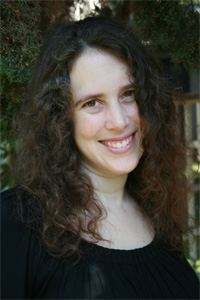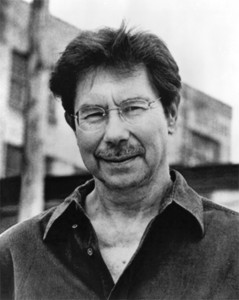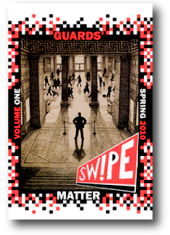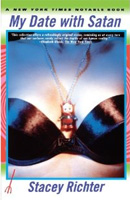 The challenge: write a story (or poem) with the words: “just kidding” in them somewhere. The deadline: April Fool’s Day. The amount of work I just did: monumental.
The challenge: write a story (or poem) with the words: “just kidding” in them somewhere. The deadline: April Fool’s Day. The amount of work I just did: monumental.
But considering what came of it – some truly good stories and poetry (except that one Walter wrote with the words “Just Kidding” at the bottom. That one could use some work.) It was a great challenge with a lot of great people helping out.
And the winner? Susan Tepper’s “Cockroach” with a total of 19 faves takes the prize. Guess what Susan? Your turn to host a challenge again.
… just kidding.
— Kevin Myrick
Any story that can combine metafiction + Stephen King + Autobots + home economics + (spoiler alert) Celine Dion (mais oui, mes enfants) deserves some kind of attention; any story that can pull this off rocks, in my opinion. For most nuanced and humorous synthesis of bizarre elements, J. Bradley deserves some kind of April Fool’s Day Challenge award.
The sheer absurdity of the story the narrator’s describing writing is highlighted by the narrator’s descriptions of the reasons for the sheer absurdity of the story. Like a Robitussing Tim O’Brien, J. Bradley not only surprises us with fan fiction elements like Domesticus, the home economics-teaching Autobot trying to save his fellow Autobots from destruction (by binary code hidden behind the term “shit-weasels” in Stephen King’s Dreamcatcher!), but also uses his metafictional investigation of fan fiction to show how all writers can get caught up in their own cleverness: “I used dialogue to show the audience how if it wasn’t for the accident, he would have never written Dreamcatcher, thus illustrating one of those spiffy time paradoxes we writers use to teach an important lesson about how you can’t change the past, only the future.” Without getting too heavy or too intellectual, what I’m saying is this is some good, funny shit. Check it out.
This story reminds me of an Ingmar Bergman film. I am thinking in particular of his film Scenes From A Marriage — that strung-together tapestry quality of a couple and their emotional life, all the dark rooms they inhabit and move through, the little leftovers from way back that can ultimately sustain or poison a life. Like anchovies. This snappy one-two-three-four-five-six-seven that Christian Bell has strung together so seamlessly, this collage of past events breaking into the present: a family and its food issues. A loaded topic. Bell gives us these funny-dark, edgy bits assimilated into a fully formed adult male who finally goes to pieces over a few pieces of anchovy. “Are there any other foods that anger you? My therapist, in full serious voice.” This is brilliant storytelling coming out of an understated voice. The form is perfect in that it models after the original 7 food groups, later condensed to 4. Where did those other 3 food groups go? Where do anchovies fit in? Isn’t it always the small stuff that really controls what’s going on? The small stuff that leads to the big cataclysmic stuff. Bell knows this but doesn’t hit us over the head, he just wants out of the anchovy pool. I found this story wonderful in its darkness and despair. I rooted all the way for the narrator to get her back, repair the past, and be loved for himself, despite. Despite that he hates anchovies but is willing to accept them in exchange for some love.
Beate Sigriddaughter’s “Ten Minutes In the Life of Franziska Kafka” is a story that employs elements of the fantastic, striking imagery, historical fiction and the romantic search for happiness.
The fantastical portion of the story, working in conjunction with the historical elements, comes primarily from the naming of characters after famous writers such as the title character and then mention of Franziska’s friend “Marie Renee Rilke,” and then less fantastic mentions such as a description of tulips “whose mouths cry open in Sylvia Plath poetry.”
The poster behind Franziska depicting the red poppy is an image returned to again and again and used with success to divide the real world – the dreaded office space – with the imagined ideal life. This other-world is never more fully drawn as when we enter Franziska’s dream as she thinks of her namesake walking “the gray streets of Prague looking for red tulips and sunny daffodils.”
In this dream-scene, Sigriddaughter writes: “Did he stand gazing at the River Vitava praying to gods he couldn’t quite believe in for a happiness he couldn’t quite believe in either, though it seemed so possible – only an arm’s reach away, only a few words away, only a kind father’s pride away?”
As we step back into the real world of Franziska’s spreadsheets and harsh reality, her dream, like Kafka’s own, is a haunting reminder to us all of our own longings, perceived shortcomings and yet remaining hope that there could be flowering color amid the gray cobbled streets ahead.
My favorite April Fool’s Day Challenge story? – Good question. There were so many great stories with brilliant lines and surprise takes on “just kidding”. The story that kept pinching me, though, was “April 1, 2013” by Susan Gibb, this neat + cruel story of a man who wakes in hospital to the (fake) news that he has lain unconscious for 3 years.
How far would people go for a joke? That’s what I discussed with a friend some days later, and retold the April 2013 story from memory. My friend commented with a (modern) german saying: “Lieber einen Freund verlieren als einen guten Witz auslassen” – “Rather lose a friend than skip a good joke.”
This is a seemingly simple tale of an ordinary woman who works the cash register at a green-grocer. The kind of person we encounter regularly and scarcely pay attention to, just hand over our money and get our groceries. In an unadorned writing style, Estelle Bruno has created this Mrs. Pavlock who has a rather sad, stressful existence with her drunken husband who beats up on the kids. So when Bruno twists the story and turns it from rags to riches, you can’t help but smile and be glad. If only it could be this way for more people more often. The Green Grocer is definitely a tale for our uncertain times.
Yesterday I read “Fuckhead” by David Erlewine and I thought: this is really edgy writing, but more than edgy, it’s RAW. And then I woke up this morning with “Fuckhead” still on my mind and I thought well I have to write a review. The repetitive use of “fuckhead” really got to me, it was wrenching. The narrator is a fuckhead, the kid is a fuckhead, the misery of being a fuckhead. It goes on and on, unsparing. A story that is unsparing to reader, writer and narrator gets five-stars in my book. I cannot dispell the image of the father: “Next to the boxed crib of a daughter his wife never persuaded him to have… Oh, boy. This is heavy duty guilt and it’s pushing down the page like the biggest bag of shit on the planet. Every movement of Fuckhead wrenched me: “…one little fuckhead running around the house was quite enough… before fuckhead began going to massage parlors… before he told his wife that he never should have married a Philistine…” Well I’m in awe of this kind of truth coming forth in the written word.
i am not a poet. hence i feel compelled to explore why this poem by molly bond struck such powerful chords with me…this is going to be amateurish, please bear with me as i bare all. molly’s poem does not deserve this, it’s a serious affair on a foolish day. she stands on the window sill, pressed to the wall, facing a moon that looked like a fingernail, bracing herself. she opens her lungs wide, i know it, i’ve done this, and because she’s young and never smoked, these lungs are crisp and allow air to spill throughout her body (i remember that feeling!), which includes (at least a couple of) toes. so far, so good. but she jumps. why? it’s not clear. is it the moon? is it a contract between the poet and the reaper? some other secret? a secret it remains. she jumps. i stopped breathing for a moment there. but there’s life for you, you cannot extinguish it like a cigarette. it’s the narrator – she reaches out and hangs on. not easily – she’s sweating, and so am i though we’re only nine (nine!) lines into the poem. ‘just kidding’, the suicidal poet says, as one might to a bystanding therapist, policeman, mother. ‘i choked’. i don’t believe it for one moment. i’m a writer, too, though not a poet, and i (think i) know a true voice when i see it. she did jump, she did hang on, the sweat on her lip is proof enough. there’s tragedy here, and the last line confirms it by blaming the wind, this must be the ill wind that blows no good, which i read about in the english-german dictionary, the wind that has no equivalent in the german world still shaking from the death of young werther, who didn’t jump, he shot himself, i believe. so there were are then, and you see, this wasn’t a review, just a ramble, and i’m sorry, so sorry, i hope i didn’t spoil it for you, no i know i didn’t because this is one damned good poem if only because the fool didn’t jump but sat down instead and wrote this. phew!
First off, I love this title. “Only losers reminisce about their show & tell days,” written by another excellent name: Ryder Collins.
The story of how old school friends go out to dinner with one another, it is more of an internal dialogue about how the past can be a grueling thing to remember. I think this line tells it all:
“He says, Charles and I used to…He looks around, then hunches down over his bread plate. Classic secret sharing stance.”
It tells so much. The horror of talking to someone you really don’t want to see in the first place. The only slightly interested main character. The painful reminder that this person thinks you are a friend, when really you’re not much more than a stranger in their life.
Chocked full of power sentences, Collins reminds us also of why we all hated memories of school: in one way or another, we were all bastards. I did bad things too, Collins. I got into a fight one time. I threw up in the cafeteria over orange an seed on my plate in the first grade. I broke my wrist.
But the main character isn’t interested in confessions. She cares not for mine as little as she does for Thom’s dark secrets. No one care about the kids who brings in “the same crap in every year.”
Collins’ story sucks you in with a peeing rabbit but holds your attention until the end when the main character kicks off her heels and prepares for more wine. “I’ve got a feeling we’re gonna be here a while.”
Your story is going to be stuck in my head for a while, Collins. Like a song I can’t quite poke out even with a q-tip.
Two boys on a trail in the woods and one shoves his “freshly sucked finger” into the ear of the other. Ouch! It’s a Boy Scout outing! A hike up the Appalachian Trail. Well naturally my girl-brains go all wonky and move into that old Boy Scout cliche mode (will these Boy Scouts skinny dip the lake with the scout chaperones)? No. Kevin Myrick has written the nasty, but not that nasty. His bad boy stuff is more in the traditional style of bullying. Daniel, the bad scout, pulls a tent pole trick nearly crushing another boy’s hand. He’s the creep they all dislike. So when the bear finally comes we’re so damned happy! I won’t give away the ending but promise you will enjoy this story that also reeks of Springtime!
Finally after much mucking around on Fictionaut; I slipped down the sardonic sinkhole of J. Bradley’s “On Writing “How An Autobot Sunk The Titanic”. The premise alone is absurdly delicious and wonderfully juvenile: The Dodge Caravan that hit and wounded Stephen King has been morphed into an Autobot named “Domesticus” and is assigned to teach the ignorant Autobots lessons in Home Economics. All this is told in “meta-narrative” style (with an homage to bad fan fiction) by a sort of stilted narrator who explains the origins of Domesticus’s inception. A lowly human named Brian is thrown in the story and he’ll eventually plow down Stephen King with Domesticus before King is able to write “Dreamcatcher”; a novel which will destroy all future Autobots. Aside from the sheer originality of the work, there are many wicked details within; a binary code worked into the word “shit-weasels”, on describing Brian, the narrator is tempted to make him “a home economics teacher for a school of people who have no sense of taste or touch”. And just when we catch our breath, Bradley throws Celine Dion in the picture. Domesticus, now inhabiting the Titanic, traps an 8 year old Dion on the ship just as the berg hits. Witty and worrisome (for the sake of Bradley’s mind), this piece is a killer.
i am a sucker for writer’s writing, always have been. when my self confidence goes down, i pick up a campus novel (alison lurie, david lodge) or henry james (the tragic muse) or whatnot. i don’t know that many writer’s short stories and few really good ones. “Ten Minutes In The Life Of Franziska Kafka” is one of them now.
there’s office relationship stuff wrapped around a mid-month account – but the tension throughout these 586 words doesn’t come from office supplies or the boss from hell – it comes from franziska – with the auspiciously burdensome surname ‘kafka’ – herself, who has a conversation in her head with a roster of literary greats, writers she aspires to emulate.
alas, she is different from all her idols in one crucial way: “I can bear it.” – she can bear it, the unbearable lightness of being, while they (kafka, plath, rilke) couldn’t (and franziska knows this). they were miserably unadapted while franziska can in fact find consolation in flowers – poppies, daffodils, “bright red flowers of life” – which cramps her style, we must presume. she’s too reverent – hilarious: for her “it is always Mr. God, or even Dr. God, or Your Honor”, she is not “conversing with gods and angels as if they were on a first-name basis”.
what redeems and may save her as a writer in the end – outside of the 10 minutes window – is her ability to daydream, which is essential for any writer, mixed with just the right amount of bitterness and jealousy towards other writers.
beate sigriddaughter has reached deeply into the fundus of the human (writer’s) comedy and come up with some veritable gold. bravo.
Fictionaut Faves, a series in which Fictionaut members recommend stories on the site, is edited by Marcelle Heath. This special edition of Fictionaut Faves is brought to you by Kevin Myrick, the host of the Fictionaut April Fools Challenge 2010.
 Gayle Brandeis
Gayle Brandeis





